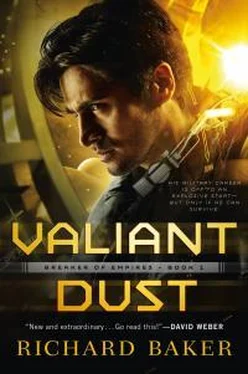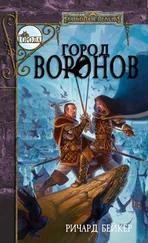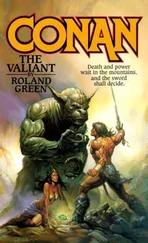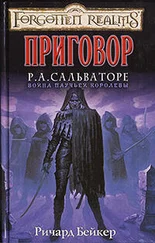Ричард Бейкер - Valiant Dust
Здесь есть возможность читать онлайн «Ричард Бейкер - Valiant Dust» весь текст электронной книги совершенно бесплатно (целиком полную версию без сокращений). В некоторых случаях можно слушать аудио, скачать через торрент в формате fb2 и присутствует краткое содержание. Издательство: Tom Doherty Associates, Жанр: Старинная литература, на английском языке. Описание произведения, (предисловие) а так же отзывы посетителей доступны на портале библиотеки ЛибКат.
- Название:Valiant Dust
- Автор:
- Издательство:Tom Doherty Associates
- Жанр:
- Год:неизвестен
- ISBN:нет данных
- Рейтинг книги:4 / 5. Голосов: 1
-
Избранное:Добавить в избранное
- Отзывы:
-
Ваша оценка:
- 80
- 1
- 2
- 3
- 4
- 5
Valiant Dust: краткое содержание, описание и аннотация
Предлагаем к чтению аннотацию, описание, краткое содержание или предисловие (зависит от того, что написал сам автор книги «Valiant Dust»). Если вы не нашли необходимую информацию о книге — напишите в комментариях, мы постараемся отыскать её.
Valiant Dust — читать онлайн бесплатно полную книгу (весь текст) целиком
Ниже представлен текст книги, разбитый по страницам. Система сохранения места последней прочитанной страницы, позволяет с удобством читать онлайн бесплатно книгу «Valiant Dust», без необходимости каждый раз заново искать на чём Вы остановились. Поставьте закладку, и сможете в любой момент перейти на страницу, на которой закончили чтение.
Интервал:
Закладка:
Caid Harsaf snorted. “By which you mean you are ready for me to poke this nest of scorpions whenever it suits me.” He was a wiry, gray-bearded tribal chieftain, his skin burned to dark brown leather by a hard life in the Harthawi Basin, a vast region of scrub plains and broken hills between two dry mountain ranges. The water station currently occupied by the sultan’s soldiers belonged to Harsaf el-Tayib’s tribe, providing a rare source of clean, pure water in the middle of what was otherwise one of the more inhospitable places Bleindel had ever visited. “The el-Manjouri had better be ready.”
Bleindel checked his dataslate. “They’re in place,” he told the desert chieftain. Convincing the hardheaded desert fighters to let him track their tactical movements hadn’t been easy, but results were what counted. The green icons representing the el-Tayib tribe and their neighbors (and occasional rivals), the el-Manjour tribe, were arranged more or less as he intended. They wouldn’t stay there for long, of course—sooner or later one of the fighters would get bored or anxious, and begin firing without regard for what should be a clear and simple tactical plan. However, that suggested just the right way to handle the proud Harsaf. “Best to get started, before Caid Ahmed and his men find a way to ruin the surprise.”
Caid Harsaf spat and nodded. “Maybe you’re right.” He rolled over and looked back down the slope to where his fighters were gathered. He gave one shrill whistle and waved his hand; below them, five teams of el-Tayib fighters quickly dropped their mortar bombs down the short barrels of their weapons and fired off a volley in the direction of the encampment two kilometers distant.
The mortars were simple and ancient weapons indeed; even Gadira’s backward industrial complex could have produced the tubes without trouble. Importing any kind of heavy artillery from offworld was not very practical, but modern mortar bombs weighed only a few kilos each and made locally produced tubes into very effective weapons for their size and portability. These rounds included a mix of guided armor-penetrating antivehicle rounds that could identify grav tanks and transports, steering themselves toward likely targets as they came down, and air-burst fragmentation weapons that showered troops in the open with lethal shrapnel. Even before the first rounds hit, the crews dropped more bombs into the tubes; the steady whump! whump! of the mortars firing battered Bleindel like big, soft punches.
“Hah!” Caid Harsaf shouted as the first volley hit. Airbursts exploded above the encamped battalion; one mortar bomb found a scout transport and blew it up in spectacular fashion, creating an orange fireball and a cloud of black smoke that rose slowly into the hot desert air. Bleindel felt the explosions through the ground beneath his belly, and grinned. One of the old Tatou grav tanks brewed up a moment later, killed by the shaped charge of an armor-penetrating bomb, but he saw a small black burst of smoke on the turret of a Léopard where another such weapon failed to destroy the newer tank.
“Damn it!” the caid snarled, pointing at the grav tank Otto was watching. It now began to move, its turret slewing from side to side. “Your bombs are too light for the newer tanks!”
“I thought that might be the case.” Bleindel shrugged. “It doesn’t change the plan. Keep firing, you’re doing plenty of damage to the other vehicles.” And any Royal Guards unfortunate enough to be outside of armor plating, as well as the station’s pump mechanisms, he thought. Well, the el-Tayibs could always fix their pump later.
He took a moment to scan the horizon in a full 360 degrees, looking for any other threats. It was all too easy to get caught up in the spectacle of a barrage and forget that sometimes your enemies weren’t where they were supposed to be. The Harthawi Basin was not as flat as its name implied. Long, rolling slopes covered in clumps of thorny desert vegetation two or three meters high provided surprisingly good cover to those who knew the terrain—and whatever one might think of the desert tribes’ lack of discipline or antiquated beliefs, they certainly did. Caid Harsaf had easily brought two hundred fighters within mortar range of an alert enemy equipped with modern fighting vehicles. In fact, if Bleindel had asked, Harsaf might have been able to get his men within rifle range without being spotted. Fortunately, that was not required today.
“They are moving out,” Caid Harsaf growled.
Bleindel looked back toward the encampment. Sure enough, dozens of the grav tanks pushed out of their laager, heading in his direction. They left at least six or seven armored vehicles burning behind them in the wreckage of the water station. That’s what will really hurt them, he decided. It was fifty kilometers to the next source of water.
“Time to let them see us run,” he told Harsaf. “Leave the tubes, but take the mortar bombs.”
The caid nodded and shouted orders at his tribesmen in Jadeed-Arabi. Bleindel had been studying diligently for weeks now, but he still found the language hard to make out. Fortunately most of Harsaf’s exhortations consisted of swearing at his followers. The Dremish agent got up and hurried down the reverse slope of the low hill to where half a dozen light transports waited. Getting them into position without raising suspicious clouds of dust had required hours of driving along at a walking pace and choosing a circuitous route that kept the rise and fall of the land between the tribe’s vehicles and the water station, but now that painstaking effort would pay off—or so he hoped.
“This would be a good time to pray, infidel,” Caid Harsaf told him as they climbed into one of the flatbed vehicles. He grinned, a flash of bright teeth. “The allameh Hadji Tumar says that God in his mercy heeds the prayers of unbelievers and believers alike, although I have my doubts.”
“Then I will hope for both our sakes that your allameh”—some sort of teacher or scholar, if Bleindel remembered correctly—“is correct in this regard.” He held on as Caid Harsaf gunned the transport’s motor and surged up out of the shallow valley behind the hill, with half a dozen more fighters clinging to the jolting transport’s back and sides. There was no hiding their movements now; speed was their only hope, although the thick dust kicked up by the bouncing transports certainly helped to obscure them from the pursuing soldiers.
Bleindel anchored himself in place by bracing one arm against the dashboard. They raced off across the desert, flattening small clumps of brush and dodging around the thicker ones. To either side, the rest of the el-Tayib transports bounced and sped alongside them, forming a great uneven semicircle as they fled toward the north. Behind them came the Royal Guard grav tanks and scout cars, relentless in their pursuit. The military vehicles were a little slower than the tribesmen’s own civilian transports, but they were built to handle tougher terrain—and they were armed with K-cannons that could reach out and kill from a very long way on open ground. The flatbed racing alongside Bleindel’s own vehicle suddenly erupted in burst of mangled metal and flying bodies, wrecked by a hypersonic round whose report came two heartbeats after it hit. Then another one of the el-Tayib transports slewed aside and buried its nose in the sandy ground, knocked out by a second shot.
“Damn good shooting!” Caid Harsaf shouted. He was right—there was so much dust behind the fleeing tribesmen that the grav tanks behind them couldn’t have been shooting by sight. Belatedly Bleindel recalled that the Léopards had both advanced radar and thermal targeting capabilities. He wondered how long it would take for one of the sultan’s grav tanks to get around to blowing his own light transport to bits, and did his best to ignore the crawling, itching sensation between his shoulder blades as he heard the earsplitting whine of additional K-rounds streaking past the fleeing tribesmen. He was not ashamed to heave a sigh of relief when the shrinking convoy finally reached the cover of a broad wadi a couple of kilometers behind their original position, and momentarily broke line of sight.
Читать дальшеИнтервал:
Закладка:
Похожие книги на «Valiant Dust»
Представляем Вашему вниманию похожие книги на «Valiant Dust» списком для выбора. Мы отобрали схожую по названию и смыслу литературу в надежде предоставить читателям больше вариантов отыскать новые, интересные, ещё непрочитанные произведения.
Обсуждение, отзывы о книге «Valiant Dust» и просто собственные мнения читателей. Оставьте ваши комментарии, напишите, что Вы думаете о произведении, его смысле или главных героях. Укажите что конкретно понравилось, а что нет, и почему Вы так считаете.












